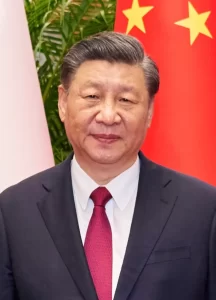 I was a doubter about Xi. His early anti-corruption drive seemed most likely to be a way to purge the Party of his enemies, and I assumed he was driven primarily by ambition for personal power.
I was a doubter about Xi. His early anti-corruption drive seemed most likely to be a way to purge the Party of his enemies, and I assumed he was driven primarily by ambition for personal power.
I was wrong.
If you want to join the CCP, you have to be accepted. It isn’t automatic. Once accepted you undergo training and if you want real power you have to rise: you have to be in charge and deliver.
In this the CCP is similar to the old Roman Republic: high political rank required you to rise up thru the cursus honorum. Doing so required you to gain experience with government: roads, sewage, trade, law and so on. In practice, few people were elected to the highest offices without military experience, and the result was that high elected officials had some actual experience with how both military and civic affairs ran.
The CCP has much the same virtues, minus the de-facto military experience. You can’t get to the top without having risen from the bottom.
There were serious threats to this in the early years of the second decade of the twenty-first century. The first was corruption: the job of officials shouldn’t be to make themselves and their families rich. People shouldn’t rise to the top because they’ve spread wealth to their supporters.
So an actual crackdown on corruption was required to retain the CCP’s policy effectiveness.
The second threat was the “princelings”. Children or grandchildren of high Communist officials, often companions of Mao. They expected office and power without having truly earned it. Xi has sidelined the majority of them. Very few have any real power in the CCP.
The third was the oligarchs. By one calculation the wealth of billionaires declined by 47% between 2021 and 2024. During the same period in America it increased over 70%. More than that, the CCP has prosecuted and imprisoned multiple billionaires, something the West never does.
Wealth=power. Huge concentrations of power outside the CCP were a huge threat to it, especially in combination with internal corruption, since corrupt and rich party members were cooperating with the oligarchs.
This has allowed China to do things like move massively to social housing and crash the housing market, something oligarchs would never allow the government to deliberately do in America. Young people being unable to afford housing was (and still is) a huge threat to the CCP’s legitimacy, but it’s being dealt with.
Weakening oligarchs hasn’t come at the expense of industry and commerce, either: the Chinese economy continues to grow, science and engineering progress is rapid, and they have recently taken control of the majority of the global EV market.
Internal corruption, cliques and external power centers controlling government are the biggest threats to any government and especially to any one party state. Xi has dealt with these problems effectively and relatively quickly and is moving on other policy concerns.
This doesn’t mean the CCP is perfect or doesn’t make mistakes. Zero Covid was done very badly (avoiding Covid was the right policy, but they screwed it up.) It does mean that they retain the ability to implement policy, often effectively.
And that’s a big win for China and the CCP.
Donors and subscribers make it possible for me to write, so if you value my writing, please DONATE or SUBSCRIBE
